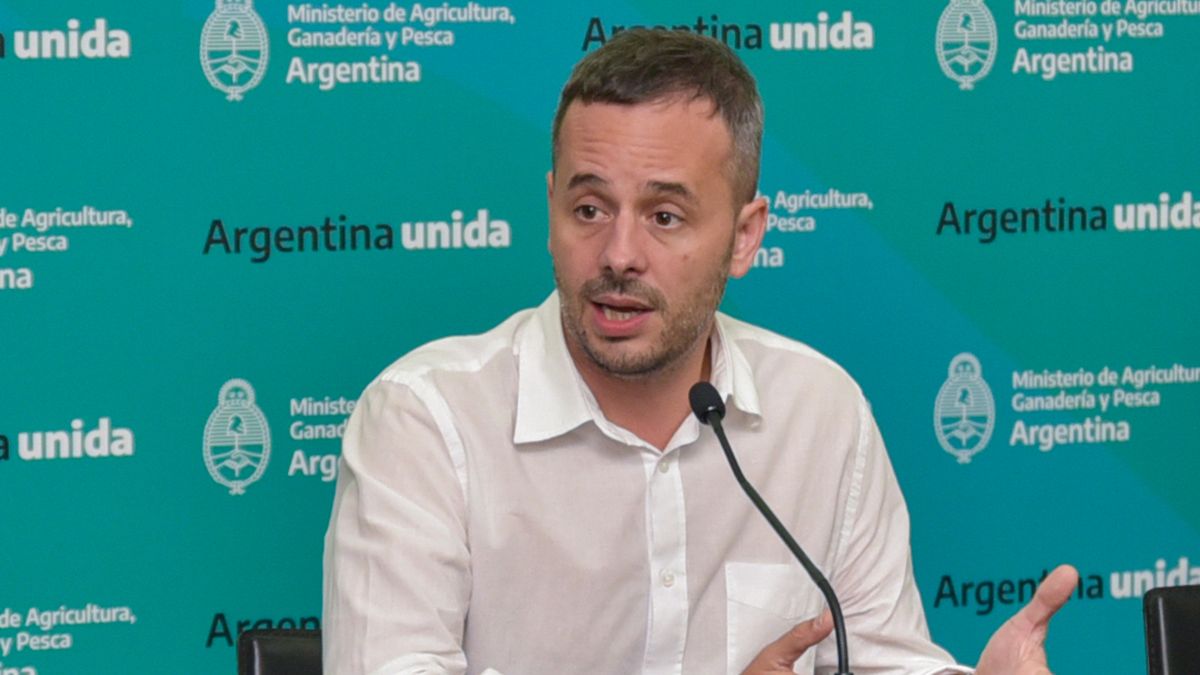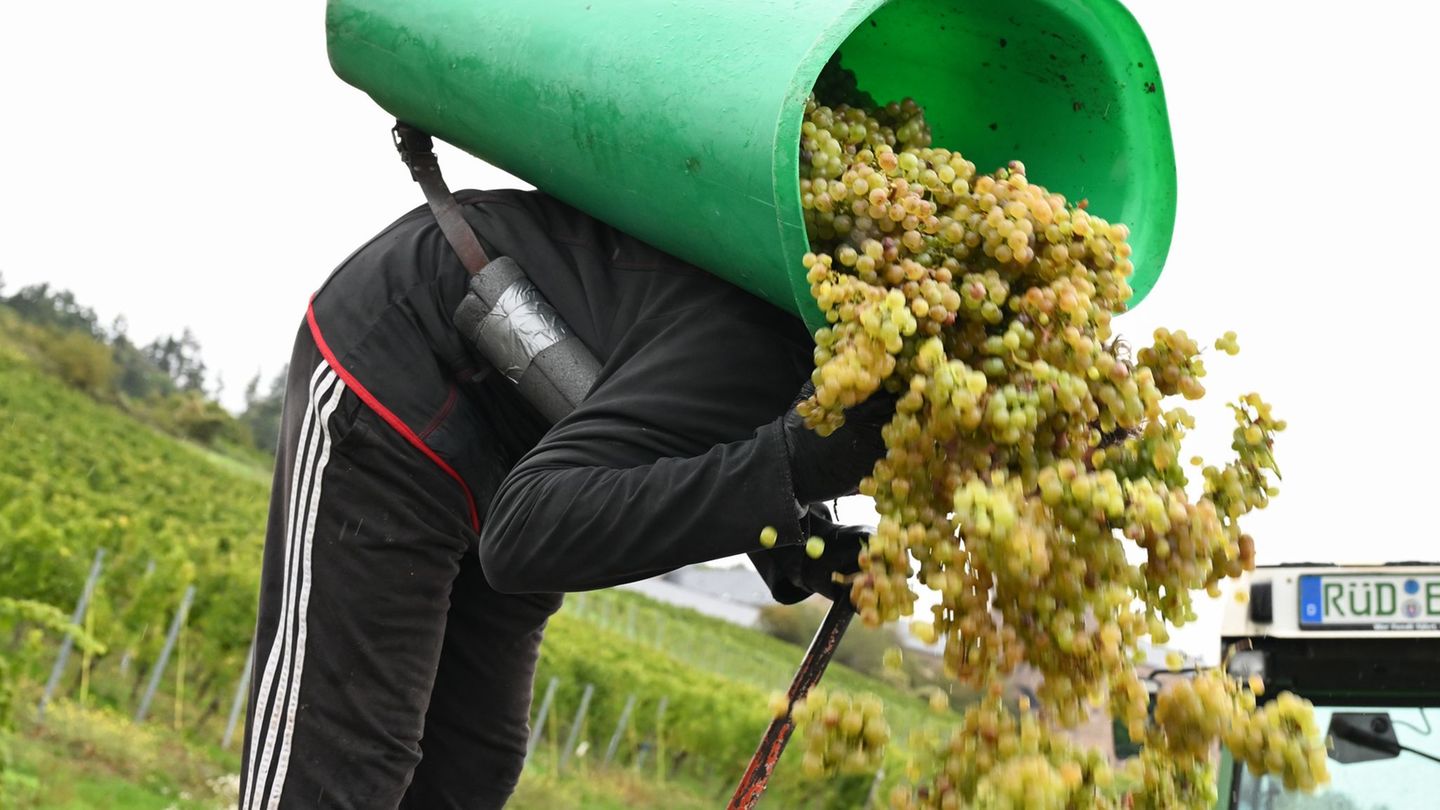Charles Liberman: Specifically, fishing is already a reality when we talk about activities with the ability to generate foreign exchange for the 47 million Argentines. Last year, still in a pandemic, facing this enormous challenge, we exported from fishing for a total of around US$2,000 million, with landings higher than those of 2019 -almost 15,000 tons more- with an expansion process throughout over the last 19 years. Because in 2003 Argentina exported fish for US$800 million and we managed to end 2021 with a truly important figure that puts fishing in a strategic place to generate foreign currency but also for the regional economies of provinces such as Santa Cruz, Chubut or Buenos Aires . As for aquaculture, since we assumed our management in December 2019, we set ourselves the goal of strengthening that sector and even created for the first time in the history of the Ministry of Agriculture the Directorate of Aquaculture that today Guillermo Abdala commands. In the world, 55% of the fish consumed by human beings comes from aquaculture, so if we locally manage to get on that path and that the US$2 billion exported by fishing last year represent 45% of the foreign exchange generated by the fish, this sector has a potential of US$2.5 billion, and it can also equal or even exceed the direct and indirect jobs generated today by extractive fishing, which are around 150,000.
Q.: What progress has been made since the implementation of the national aquaculture law?
CL.: Since we took office, we have traveled the country and there are currently 13 provinces that adhere to this law that seeks to promote the sector with a productive but also sustainable perspective. In other words, first, before starting any project, a study is carried out with our technical team to highlight the productive sustainability of the species that is sought to be bred. We hope to finish our management with all the provinces adhering to this macro law. For now, we managed to double aquaculture production in Argentina to reach 4,000 tons and in 2023 we hope that it will multiply again to reach 8,000 tons and also achieve a new jump in 2025. From there, the objective is that the sector is diversified, that productive undertakings are generated, generators of employment in all the provinces. We have financed research and development projects for more than $200 million and we are going to continue adding financing to the sector. The main thing is that the ventures range from the south of the country, such as Santa Cruz, to northern provinces such as Tucumán or Misiones, and from the center, such as Santa Fe. Aquaculture can be installed and grow steadily throughout the territory.
Q.: In recent weeks there has been a lot of talk about replacing pink salmon with rainbow trout for making sushi. Some cooks celebrated it and others demonized it. What is your view of this controversy?
CL.: First of all, it is worth clarifying that trout is a salmonid and therefore it is not at all a replacement for pink salmon. More specifically, trout is the improvement of salmon, because replacing gives the notion that we are going to use an equivalent or inferior product and it is quite the opposite. Argentine trout is a product that, first of all, is completely free of antibiotics, is produced in areas free of communicable diseases, something that does not happen with salmon, and thirdly, to the extent that the consumer tries it, they will realize which is also richer, the appearance is similar but the taste is superior. Not to mention its value, since it is not imported, it is much less than pink salmon. We understand that as aquaculture continues to grow, not only will we be able to supply this new demand, but we will also be able to export even more. We have a quality product that the world requires.
Q.: How do the sanctions on foreign vessels for illegal fishing evolve?
CL.: As soon as we assumed our management, we sent a bill to Congress that was approved in 2020 through which the amounts of sanctions were increased by more than 30 times what the old law established. At that time the maximum penalty was 10 million pesos and currently it is 3 million liters of fuel, so that the amount is updated and it is a recurring case is 6 million liters of fuel. We also incorporated four ocean patrol vessels that are already in Argentina, we currently have vessels from the Prefecture, the Navy, Prefecture aircraft, the Navy, we have 25 satellite images per day that the National Aerospace Commission provides us, we have radars on land and on board, all this to control our exclusive economic zone that is the famous mile 200. Consequently, in the first year of management we seized three foreign ships, in comparison, during the previous management, in four years they had barely seized two ships. We have set a precedent in the care of our natural resources, our regional economies and our jobs, thanks to this work we have managed to dissuade and the situation is fully controlled.
Source: Ambito
David William is a talented author who has made a name for himself in the world of writing. He is a professional author who writes on a wide range of topics, from general interest to opinion news. David is currently working as a writer at 24 hours worlds where he brings his unique perspective and in-depth research to his articles, making them both informative and engaging.




